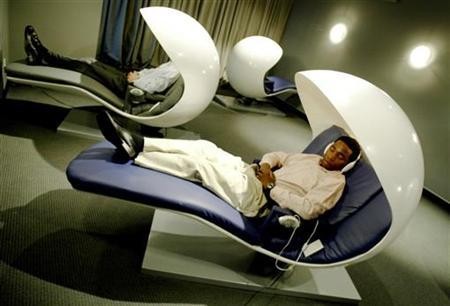Taking a power nap in the middle of the day can be healthy for some people, and a sign of bad health or even early death for others. Some people's bodies are hardwired to take a midday snooze, causing their productivity to drop if they miss it. A new study reveals that noon dozes can provide various health benefits such as lower blood pressure, and heart disease prevention.
The study was conducted by Asklepieion Voulas General Hospital in Athens, Greece. It was presented on August 29, Saturday at the annual congress of the European Society of Cardiology (ESC) in London.
It included 386 middle-aged people with hypertension. Researchers examined factors such as the workers' sleep time, blood pressure readings at work, and lifestyle habits, according to India Today.
Noon nappers had a blood pressure that was about 5 percent lower than non-nappers. The figure might seem miniscule. However, past studies have discovered that blood pressure drops half that amount can lower the risk of cardiovascular disease by up to 10 percent.
Researchers learned that longer naps resulted in greater blood pressure drops, and nodding off for over an hour produced the biggest benefits. However, shorter naps result in higher alertness.
Study volunteers also showed other benefits from midday cat-naps. Cardiologist Manolis Kallistratos noted that lower blood pressure resulted in less damage to their arteries and hearts.
The ideal nap times range from 10 to 20 minutes. Longer dozes result in people entering the later stages of sleep, causing them to feel groggy after waking up, according to WHIO. A full sleep cycle takes 90 minutes.
In addition, a study by Cambridge University revealed that people who snooze for over an hour had nearly a one-third higher risk of dying. Longer snoozes were also closely linked to respiratory disease.
Sleep experts highlight the importance of people knowing why they are taking a nap. For instance, people probably dream during 20-minute naps because they are suffering from sleep deprivation at night.
Meanwhile, the bodies of many people are "programmed" to catch some shut-eye in the daytime. The figure is about 40 percent.
This video explains how much sleep people need:



























